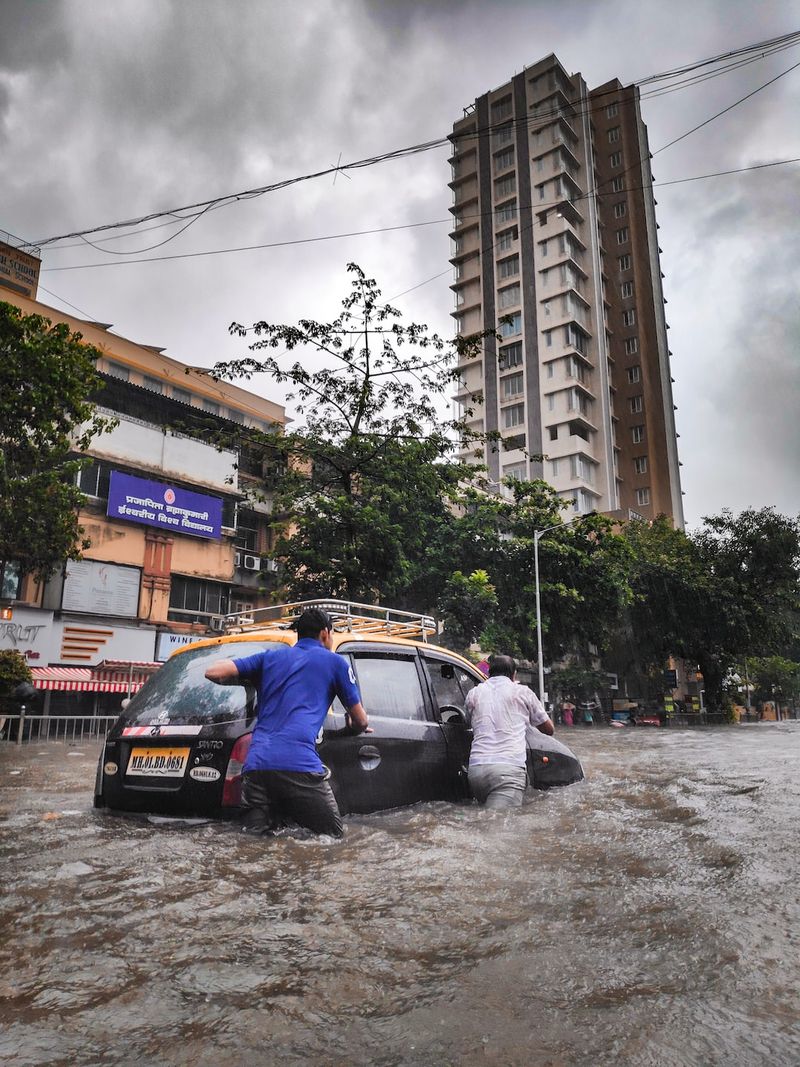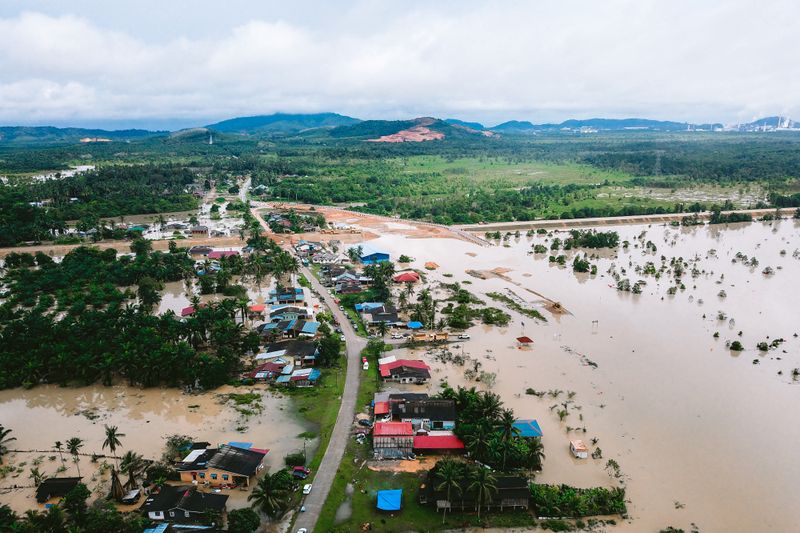**The Current Situation**
Greece is currently being ravaged by torrential rains, causing severe flooding in homes, businesses, and roads. This extreme weather event has already claimed one life, as a wall collapsed under the force of the floodwaters. The country’s prime minister, Kyriakos Mitsotakis, has described the situation as a “totally extreme weather phenomenon” and has called on the public to follow the instructions of authorities.
The central region of Greece, as well as the islands of Evia and the Sporades, are experiencing particularly severe rainfall. The Greek fire service has reported one fatality in the village of Agios Georgios, where a man was crushed by a collapsing wall. Another individual is missing after being swept away with their car on the outskirts of Volos. The police have imposed traffic restrictions in Volos and its surrounding areas, as well as on the island of Skiathos.
In addition to the loss of life and property damage, the storm has also caused disruptions in healthcare services. Part of the local hospital in Volos has been flooded, further exacerbating the challenges faced by the affected communities.
**The Extent of the Storm**
The storm, officially named Daniel by the national meteorological services in southeast Europe, is moving slowly across the country towards the southwest. Although its center is emerging into the Mediterranean Sea, it is expected to continue bringing heavy rainfall and flooding to Greece and the islands in the eastern Mediterranean for the next 24 to 48 hours.
**The Danger of “Medicanes”**
This storm has the potential to develop into a “medicane,” a Mediterranean weather phenomenon that can resemble tropical storms or hurricanes in the Atlantic and typhoons in the Pacific. Due to warm sea surface temperatures in the eastern Mediterranean, the storm may strengthen over the next couple of days.
This term, “medicane,” is not just a buzzword. It represents a real threat to coastal countries in the Mediterranean region, similar to the dangers posed by tropical storms and hurricanes. The potential for these systems to bring dangerous conditions, including heavy rain, strong winds, and flooding, cannot be underestimated.
**The Link to Climate Change**
The extreme weather events that Greece has been experiencing, from devastating wildfires to severe floods and extreme heat, are a cause for concern. Scientists have been clear in their warnings that these events will only become more frequent and severe as long as humans continue to burn fossil fuels, driving global warming and climate change.
As we continue to see the devastating impacts of climate change unfold, it becomes increasingly important for governments and individuals to take decisive actions to reduce greenhouse gas emissions and mitigate the effects of climate change. Investing in renewable energy sources, implementing sustainable farming practices, and establishing resilient infrastructure are just a few of the steps that can help protect communities from the growing threat of extreme weather events.
**Editorial and Advice**
The current situation in Greece serves as a stark reminder of the urgent need to address the impacts of climate change. This extreme weather phenomenon is a distressing sign of what lies ahead if we fail to act decisively. While Greece grapples with the immediate challenges of flooding and the aftermath of wildfires, it is crucial for the government and citizens to prioritize the long-term resilience of the country.
This requires a comprehensive approach that includes investments in climate adaptation and disaster risk reduction measures. It is essential to strengthen early warning systems, improve infrastructure resilience, and enhance emergency response capabilities.
At an individual level, it is important for residents in flood-prone areas to be vigilant and follow instructions from authorities. It is advisable to stay informed through reliable sources of information and have emergency kits prepared in case of evacuation. Additionally, citizens should take proactive steps to reduce their carbon footprint, such as conserving energy, using public transportation, and supporting policies that promote renewable energy sources.
In conclusion, Greece‘s current ordeal serves as a wake-up call for the urgent action needed to combat climate change. The devastating floods and extreme weather events should motivate governments, communities, and individuals to prioritize sustainability and work towards a carbon-neutral future. Only through collective efforts can we hope to mitigate the impacts of climate change and protect our planet for future generations.

<< photo by Saikiran Kesari >>
The image is for illustrative purposes only and does not depict the actual situation.
You might want to read !
- Climate Crisis Unleashes Dual Disaster on Greece: Devastating Fires Followed by Destructive Floods
- Heartbreak for Afghanistan as Sri Lanka narrowly secure qualification
- Georgian College Leads the Way in Canada’s Industrial Revolution
- “Streaming Showdown: How to Watch UEFA Super Cup Clash Between Manchester City and Sevilla”
- How to Catch the Live Action: Man City vs Sevilla Live Stream, TV Channel, and Lineups Revealed
- Tropical Storm Franklin’s Wrath Looms Large over the Dominican Republic and Haiti
- Tropical Storm Franklin’s sluggish journey across the Atlantic
- “Marks of Transition: Reflecting on the Unofficial End of Summer as School Begins”
- Godzilla Minus One: Unleashing the Terrifying Origins of the Kaiju King
- “Québec Cities Rally for Disaster Funding Amidst Verglas, Forest Fires, and Tornadoes”
- Middle East Expert to Address Sheridan College on September 6th




